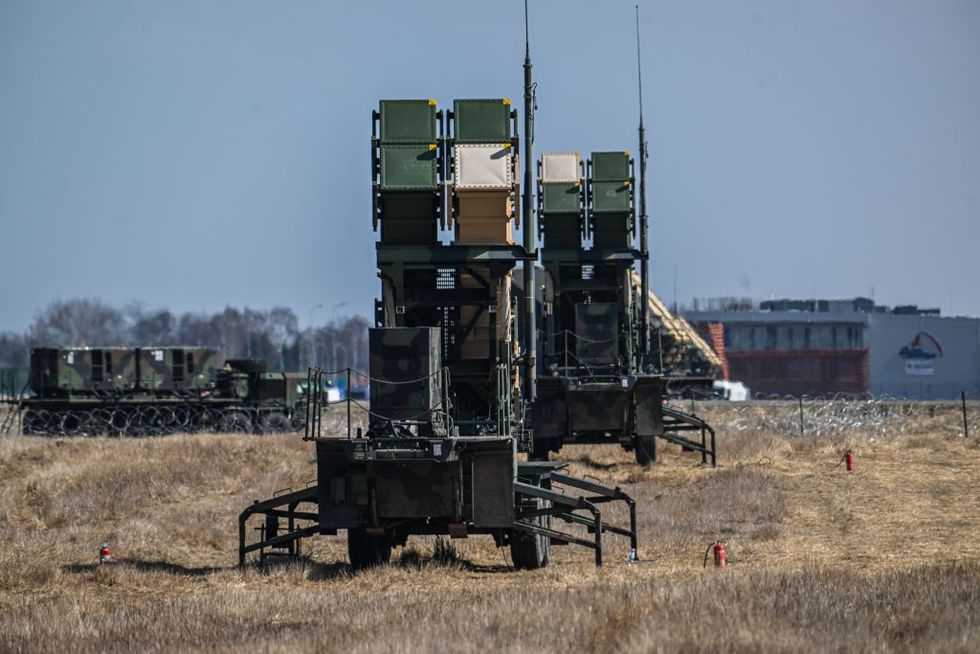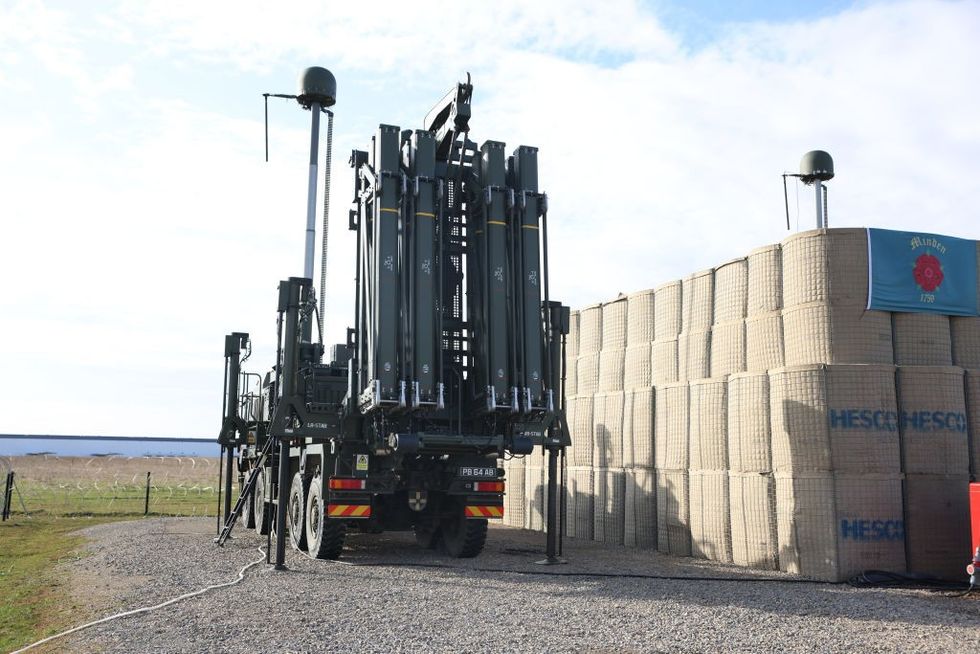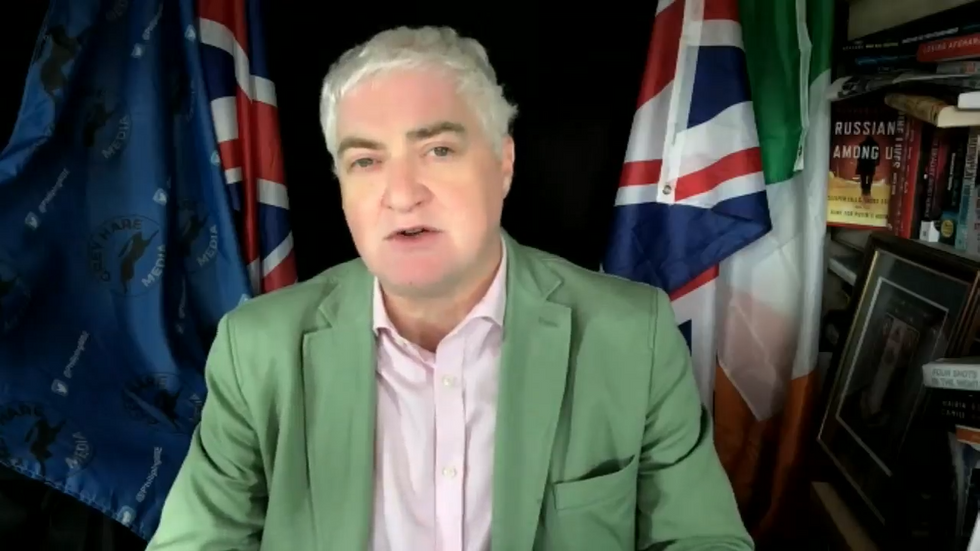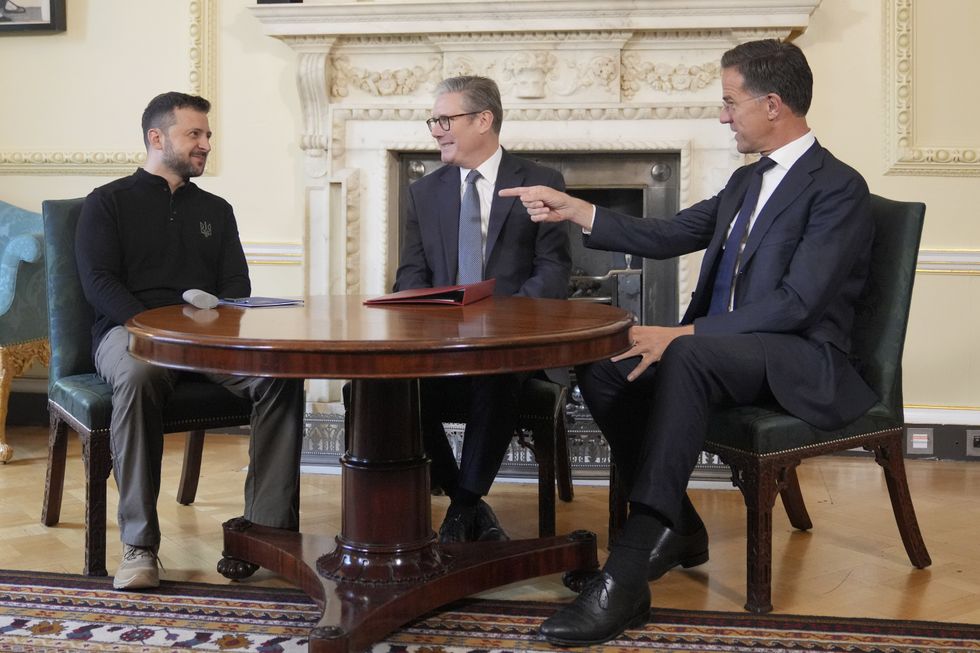Britain is withdrawing its air defence systems from Nato’s eastern frontier amid warnings the UK is “woefully exposed” due to lack of domestic protection.
Sky Sabre rockets and radar systems, which have been shielding Poland for two and a half years, are being pulled back to British soil.
The withdrawal comes as former intelligence officer Colonel Phillip Ingram warns that the UK is “totally unprepared” for war and criticises the Government for failing to prioritise armed forces.
The systems have been protecting Poland’s Rzeszow airport, just 40 miles from the Ukraine border, since March 2022.

An anti-missile defence launcher stands at Rzeszow Airport
Getty

A Sky Sabre system is seen during a visit by Prince William, Prince of Wales, to meet British Armed forces in Rzeszow
Getty
The Sky Sabre systems are designed to intercept jets and cruise missiles, with capability to fire up to 24 missiles at separate targets during a “saturation attack”.
Their Giraffe radars have a 300-mile range and have tracked thousands of Russian missiles and drones targeting western Ukraine. However, the systems cannot intercept ballistic missiles like the Oreshnik that Russia used against Ukraine last month.
Norway will deploy F-35 jets and Nasam air defence missiles to replace the British systems, while Poland has ordered 1,000 air defence missile launchers from the UK in a £4bn deal.
The Ministry of Defence said Sky Sabre “will be reconstituted in the UK, ensuring that the UK Armed Forces has flexibility on operational requirements in future, including training more personnel.”
LATEST DEVELOPMENTS
 Colonel Phillip Ingram said the UK was “totally unprepared” for warGB News
Colonel Phillip Ingram said the UK was “totally unprepared” for warGB NewsCol Ingram warned: “Our Army is woefully small and poorly equipped for warfighting.”
“The defence industrial base is not currently capable of building the equipment and ammunition needed for war, in the rapid time frames it would be needed,” he added.
Labour has committed to increasing defence spending to 2.5 per cent of GDP, though no specific timeline has been provided. Nato Secretary General Mark Rutte has warned allies must “shift to a wartime mindset” and increase defence spending beyond the current two per cent GDP target.
Speaking to the BBC, Rutte said: “My plea here is, if you have children, grandchildren, if you think our way of life should be preserved: democracy, our values, then we have to prioritise defence.”
 NATO General Secretary Mark Rutte, with Keir Starmer and Ukraine’s President ZelenskyGB News
NATO General Secretary Mark Rutte, with Keir Starmer and Ukraine’s President ZelenskyGB News“I can tell you, we are going to need a lot more than two per cent,” he added during a speech at the Carnegie Europe think tank in Brussels.
Former Defence Secretary Ben Wallace suggested three per cent would be needed for UK armed forces to be “match fit”.
Poland has significantly ramped up its defence spending to 4.7 per cent of GDP for next year, setting an example for other Nato allies. The UK currently stands as the third-largest defence spender in Nato after the US and Germany, with spending at 2.3 per cent of GDP.
A Number 10 spokesman said: “We will be setting out a pathway to 2.5 per cent in the Spring.”
Foreign Secretary David Lammy has urged other Nato members to “get serious” about defence spending, highlighting the growing threats from Russia across Europe and the Middle East.